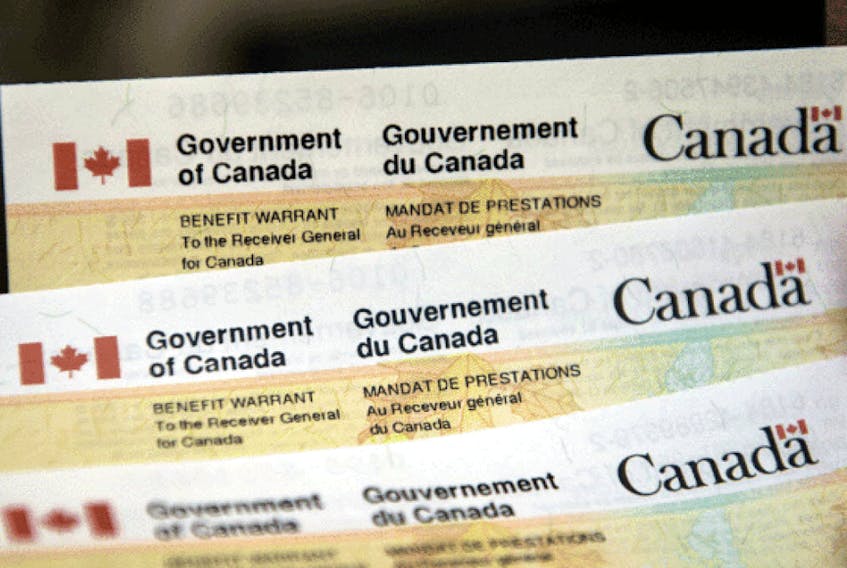End Homelessness St. John’s is calling on the provincial government to stop penalizing income support recipients who have qualified for the Canada Emergency Response Benefit (CERB).
On April 9, the Department of Advanced Education, Skills, and Labour announced that income support benefits and CERB payments cannot be received at the same time. Anyone who qualifies for the $2,000-a-month CERB benefit would have their income support payments cut off immediately.
The situation, first reported by The Independent, puts the most vulnerable at greater risk, according to advocates.
While $2,000 a month is often double what is received by those on income support in Newfoundland and Labrador, Doug Pawson, executive director of End Homelessness St. John’s, says other jurisdictions don’t penalize income support earners who are receiving CERB payments.
“I think a global pandemic constitutes an exemption, a one-time exemption for the duration of the CERB program, which is what B.C. did,” said Pawson.
“That way you’re not asking your staff at (Advanced Education, Skills, and Labour) to go and enforce penalties and penalize people, put people in precarious situations. They just have it, and that’s it. Is anyone going to get out of poverty with an extra two grand? Probably not. But if it allows them to live with a bit of dignity in very precarious times, then why are we penalizing them, but we’re allowing other low-wage earners who may work to receive it without question?”
British Columbia, the Northwest Territories, and the Yukon are exempting CERB payments from income Support clawbacks.
Elsewhere, Alberta, Manitoba, Ontario and Quebec treat CERB payments as earned income, which still allows for claw backs, but does not halt any income support benefits.
On April 13, federal Employment, Workforce Development and Disability Inclusion Minister Carla Qualtrough recommended provinces and territories exempt the CERB from social assistance payments and benefits.
“Income support is meant to be a last resort for Newfoundlanders and Labradorians with no other means of financial support. An individual has pursued all other financial resources that would be available to them before they would qualify for income support, so this would be very similar to other programs such as somebody receiving old age security or CPP or other types of benefits, they would be deducted, there would be a clawback based on that. They’re not exempt income under our policies and regulations.”
The Atlantic provinces, Saskatchewan and Nunavut are halting income support payments for those receiving the CERB, according to a July 20 document sent to government by End Homelessness St. John’s.
Advanced Education, Skills, and Labour Minister Chris Mitchelmore says some health benefits will remain in place for those on income support who are now receiving CERB payments.
“Individuals would be financially better off when they were in receipt of CERB. What we have done is we’ve allowed those who were on income support and had transferred to CERB to continue to maintain their foundation drug card and their medical travel benefits,” said Mitchelmore.
“Income support is meant to be a last resort for Newfoundlanders and Labradorians with no other means of financial support. An individual has pursued all other financial resources that would be available to them before they would qualify for income support, so this would be very similar to other programs such as somebody receiving old age security or CPP or other types of benefits, they would be deducted, there would be a clawback based on that. They’re not exempt income under our policies and regulations.”
In a July 10 letter to Pawson and other community groups, Mitchelmore pointed to $500,000 given to the province’s food bank network as an example of how government is supporting vulnerable populations during the COVID-19 pandemic.
Pawson says clawing back income-support benefits during a global pandemic worsens conditions for the most vulnerable.
“It’s a public health concern. You’re putting vulnerable people in a position where they’re more vulnerable and precarious,” he said.
“If you’re working minimum wage, you’re eligible for the CERB, but typically you’d earn $1,200 a month and now you’re eligible for $2,000. There’s no problem with that, so you’re penalizing and trying to save money on the backs of our most vulnerable.”
Another concern for Pawson is a 60-day delay between applying for income supports and receiving the money.
Mitchelmore says department staff will work closely with those re-applying for income support to minimize the wait before receiving income support payments once the CERB is concluded.









